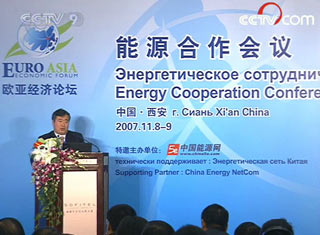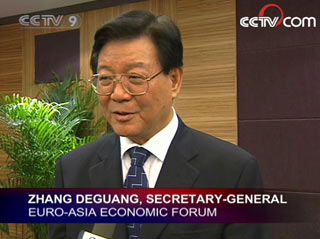China
Eurasian countries agree on energy saving
WATCH VIDEO
Source: CCTV.com | 11-12-2007 08:30
 |
The Euro-Asian region has abundant natural resources, especially oil and gas. Countries in the region have been discussing climate change at a recent forum.
Natural Gas buses have been in operation for several years in China's northwestern city of Xi'an, where the Euro-Asia Economic Forum was held.
These eco-friendly buses consume only half the amount of fuel of regular buses and can reduce tail gas exhaustion by ninety percent. Other countries in the region agree that it is important to increase cooperation in energy conservation and emission reduction.
 |
zhang Deguang, Secretary-general of Euro-Asian Economic Forum,said, "Energy cooperation in this region doesn't only mean energy consumption and supply, but also the development of clean energy as well as how to properly handle the relations between energy consumption, environment protection and sustainable development."
Delegates at the forum agreed to promote the development and utilization of renewable and alternative energies. They also decided to scale up the application of energy-saving and environmental-friendly technologies and mobilize the participation of the private sector, research institutions and civil society.
Some delegates expressed willingness to strengthen strategic energy cooperation with China.
Sergey Terechshenko, former PM of Kazakhstan, said, "China and Kazakhstan have good cooperation in the energy sector, which has driven the cooperation among Central Asian countries. Our cooperation ranges from oil and gas to wind power and water power and more. We should properly utilize energy."
Delegates also discussed the possibility of forging an energy club among SCO countries. The club would balance the interests of countries which either produce, consume or transmit energy.
Energy cooperation is a priority for countries in the Euro-Asia region. The countries say they are taking a more responsible attitude to finding ways to ensure energy security and to fight global warming.
Editor:Zhang Ning



